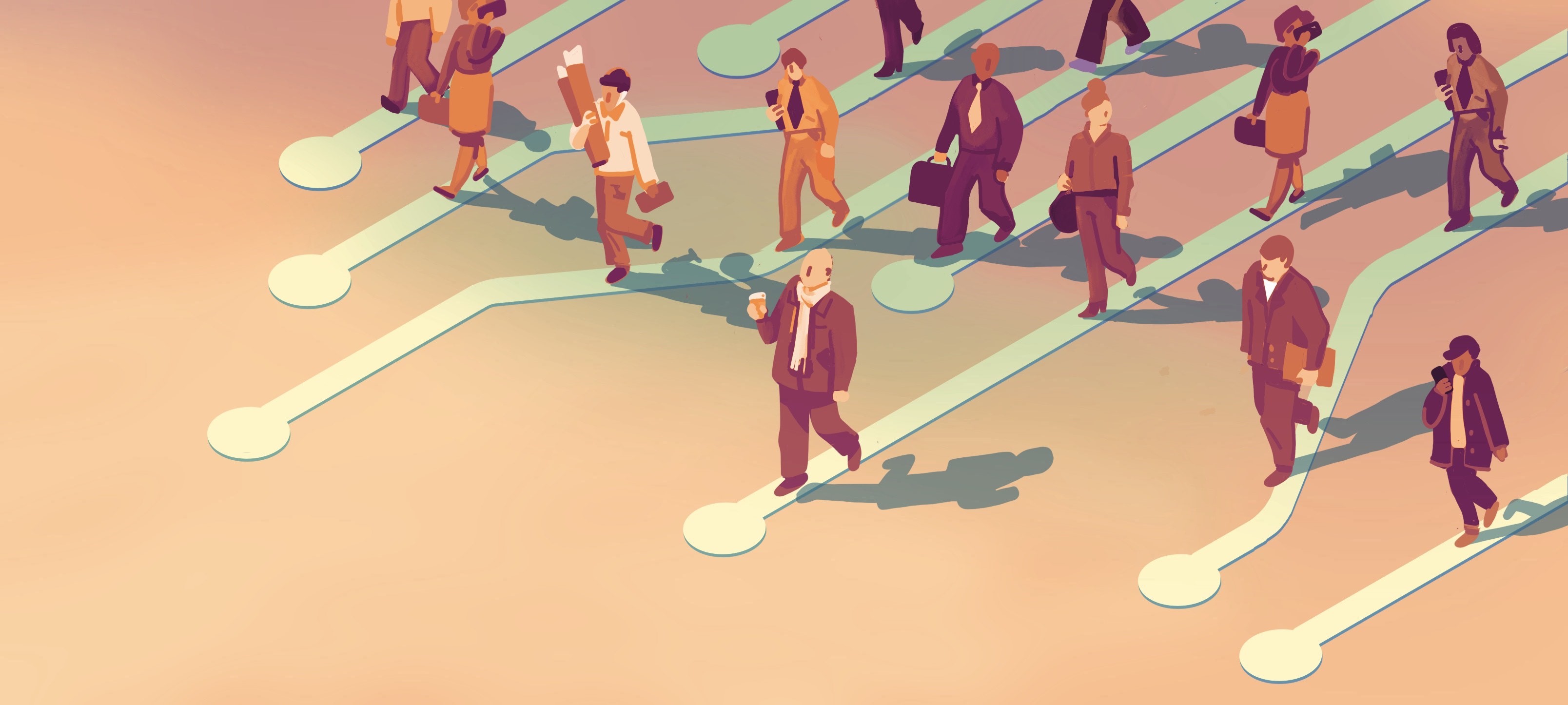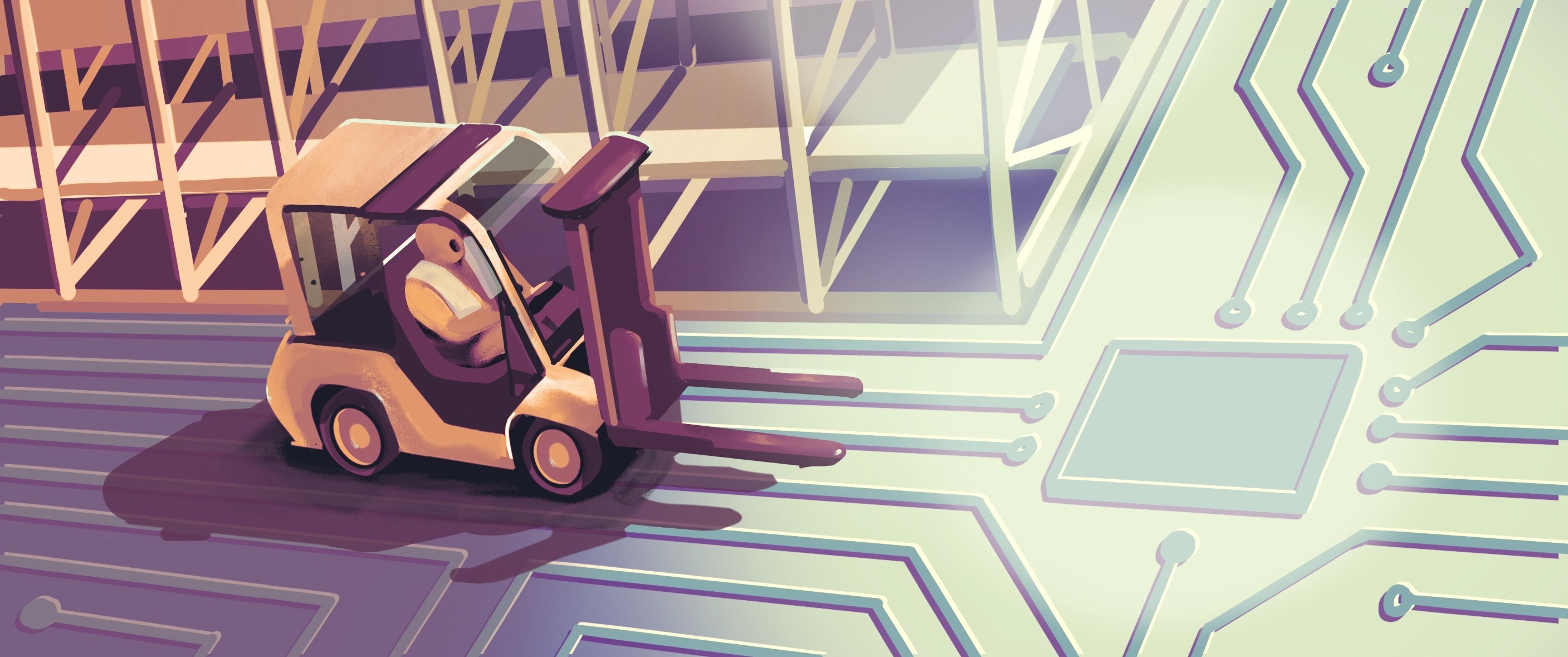"The hype is greater than the actual change"

“There is more hype than actual change”
Is it likely that ChatGPT and Co. will one day make us superfluous? Not at all, says Eva-Maria Walker, Professor of Sociology at the Faculty of Social Sciences of Darmstadt University of Applied Sciences. As far as the often fear-driven debate about artificial intelligence (AI) and the replaceability of human labour are concerned, she advises distinguishing between hype and reality. For example, from what we know today, “low-skilled jobs” – such as those in logistics or industrial production – are less at risk than generally assumed. Historically, too, she says, there are no examples of a technological revolution leading to mass unemployment. That is why Professor Walker is focusing her research on the question of how society can proactively shape technological change.
Interview: Christina Janssen, xx.9.2023
impact: “Ingenious or dangerous?” That is what we asked in our last impact article about ChatGPT. What do you think?
Professor Eva-Maria Walker: As a sociologist, I would approach the question from a different angle, namely: What is the vision and how does it differ from what is happening in reality?
impact: One vision that worries many people is the phrase “replaceability of human labour”. Will ChatGPT soon be writing interviews like this one here?
Walker: Well, it’s creative work that is predicted to have a high probability of survival. But that naturally doesn’t get to the heart of your question. I would like to answer first of all from a historical perspective: at first sight, technological quantum leaps like we are experiencing right now seem extremely radical to us. And, after all, they are everywhere in the news too. But we know that there has never been any causality in the connection between technological quantum leaps and the replaceability of labour.
impact: You’re contradicting the statement: What is technically possible will be done. But we have the atomic bomb. Some 25 years ago, Dolly, the cloned sheep, was just the start of the genetic demystification of the individual. Agricultural multinationals are selling genetically optimised seeds. Cell phones and video games have virtually completed their triumphal march around the globe and ousted books from children’s bedrooms. Are there also examples that indicate otherwise? That ChatGPT and Co. are not unstoppable?
Walker: There are counter-movements. There are people who, for example, are quite consciously opting for an old Nokia brick again. There are debates about “digital detox”. When the first railway line opened, critics said it was far too soon. All social developments allow for possible counter-developments at the beginning. And it is here that I would also see the task of sociological research, to empower citizens, employees and students to reflect critically on developments: What do we want, what do we need, how do we want to shape our society?
impact: Nevertheless, many people are afraid.
Walker: Yes, this strong narrative remains nevertheless: I’m being replaced and there is nothing I can do about it. But there is never just one development. We are currently also experiencing an increasing shortage of skilled workers and demographic change. These are developments that empower employees. That is why I find it surprising that we are now stuck in this vicious circle of fear.
impact: And that is why discussing what action can be taken is more important to you than a debate about fear?
Walker: For me, it’s about asking the following question. How can we explain to employees that they have a fairly strong negotiating position? In one of our research projects, we have looked specifically at the replaceability of low-skilled workers in a large logistics company. In other words, the group of employees about whom everyone would say, figuratively speaking: You’ll be gone by Friday. And the exciting thing about our results is that we were able to show that it is impossible merely to replace this work. Or only under certain conditions. There is no simple mechanism between technical possibilities and de facto replaceability. And that seems to me to be a very important finding.
Sociologist Eva-Maria Walker has been teaching social sciences with a focus on the transformation of work at Darmstadt University of Applied Sciences since June 2022. She also works as a freelance lecturer for the Friedrich Ebert Foundation in continuing education for employees and heads of works councils. In her research, she deals with the interactions between work, organisation and society. Specifically, this involves topics such as technology acceptance, claims to meaning and equity in work, new forms of work organisation, such as agile working, and structural change as a result of the digital transformation. She is currently setting up the Master’s programme in Applied Social Sciences at the Faculty of Social Sciences, which deals with transformation processes in the world of work, the economy and society from an interdisciplinary perspective.
impact: One of the things driving fear in the current debate is a 2013 study, in which Oxford professors Carl Benedikt Frey and Michael Osborne came to the conclusion that almost half of all jobs are susceptible to computerisation. Are you sounding the all-clear?
Walker: Yes! We looked at low-skilled workers in retail logistics. These are employees who pack goods onto pallets. That is basically their job. And they have to pack the goods on the pallets in such a way that they are arranged stably, the pallets don’t fall over and the goods don’t break. Sounds quite simple.
impact: The assumption would be that a machine can easily do that.
Walker: And that was indeed the initial situation in the company. Some of its warehouses were already partially automated, and the goal was to introduce partial automation on the premises we looked at more closely. But that one was different from the others because there was a greater variety of products for order picking. And this one small factor alone meant that automation was not as simple as the company’s management had hoped. Low-skilled work is often more complex than quantitative studies reveal. This is where experiential knowledge comes into play
impact: But isn’t it that which actually distinguishes an AI system? The fact that it can acquire experiential knowledge? Isn’t it just a matter of time before these employees lose their jobs after all?
Walker: That’s a very interesting question. There will always be a difference between what technology can do and what human creativity can do. The question is: How do we handle this difference? I talked to a colleague recently about AI in medical diagnostics. As we know, it is already possible for AI to detect carcinomas. But some uncertainty always remains. And who do we leave the responsibility to at the end of the day? That also depends on which area of society we are in. In logistics, nobody’s life depends on it if a pallet is packed incorrectly for once. It is different in medicine or air traffic control.
impact: The AI does the work, but a human ultimately bears the responsibility. Is this the division of labour of the future?
Walker: All employee representatives would like precisely that: the machine does the strenuous, tiring and repetitive work, while the more pleasant or interesting work is done by humans. This can by all means be a company’s normative objective. But it can also be a strategic consideration to say: humans contribute their experiential knowledge, which is in fact far less expensive than if I have to keep programming the AI system to the latest level. For example, the human worker knows that this week, but only this week, we have to stack the products for a certain store in a different order on the pallet. It would be far too complicated to reprogramme the software for just one week and only one store. It is then a hard-headed economic decision to say: I’ll continue to let human workers do that.
impact: What conditions must a company meet, then, so that employees can help shape technological change without being afraid?
Walker: It often happens in sociological studies that you already have the first finding when you access the field. We interviewed various logistics companies. In ones where we encountered employees who were very open, there was also a corporate culture characterised by trust. This immediately revealed an important point for shaping technology: it is important that companies introduce a new technology on the basis of trust and transparency. In firms where there was a high level of commitment from the outset, a strong works council or a strong interest group, first of all it was easier for us to talk to the employees. And secondly, this culture of fear was not so widespread there. In those companies, the assumption was more: “Even if our work becomes superfluous, we’ll be trained for another position. Or we’ll take on another semi-skilled job.”
impact: At least for a while yet. What about the durability of such findings, do you dare to make a forecast?
Walker: Sociologists are not really responsible for forecasts. I would analyse past forecasts: we have predicted the end of work so many times. There were major financial crises, there were countless crises in the business world. And now everyone is turning their attention to artificial intelligence and digitalisation. But in most cases the pessimistic forecasts have not come true.
impact: What does all this mean for us as a university? For how we educate young people?
Walker: My takeaway from the study was that managers were better able to shape such processes if they had not only a technical background but also looked at them from a social science perspective. And that is also key for us at the university: we must empower students of STEM subjects to think from other perspectives as well. They are not necessarily obliged to act accordingly, but in my view taking these other perspectives into account would seem a promising approach.
impact: Thank you very much for the interview.
Contact
Christina Janssen
Science Editor
University Communication
Tel.: +49.6151.533-60112
Email: christina.janssen@h-da.de
Translation: Sharon Oranski


